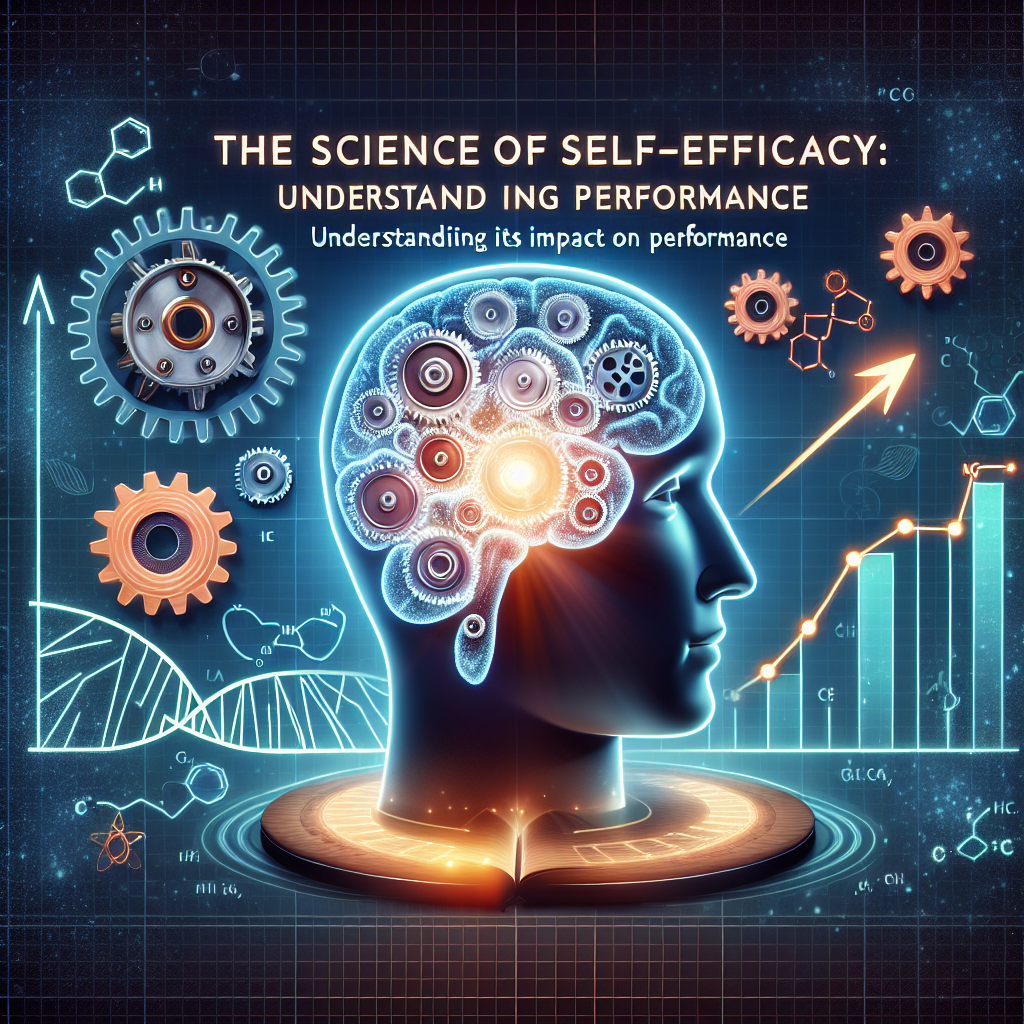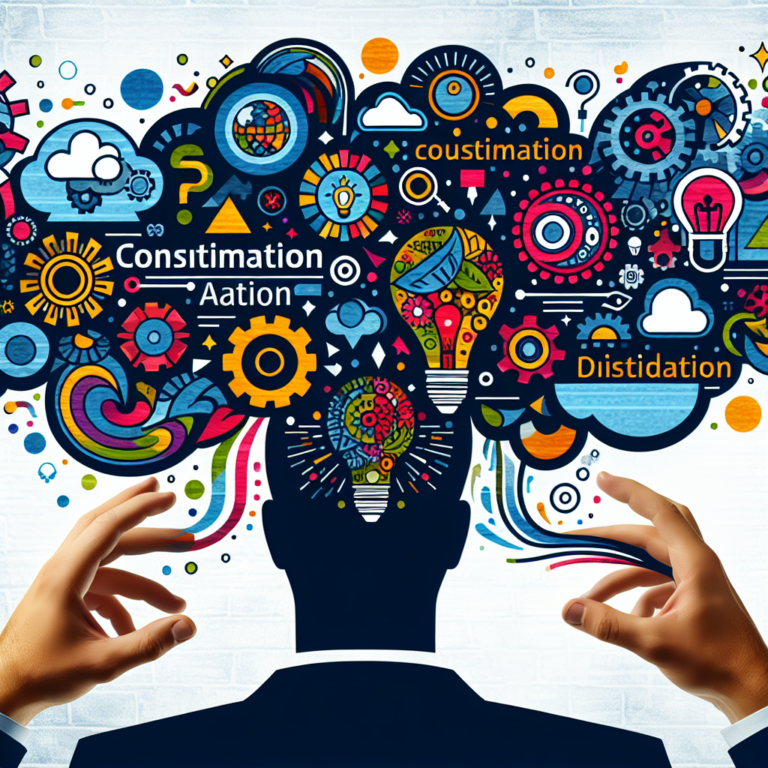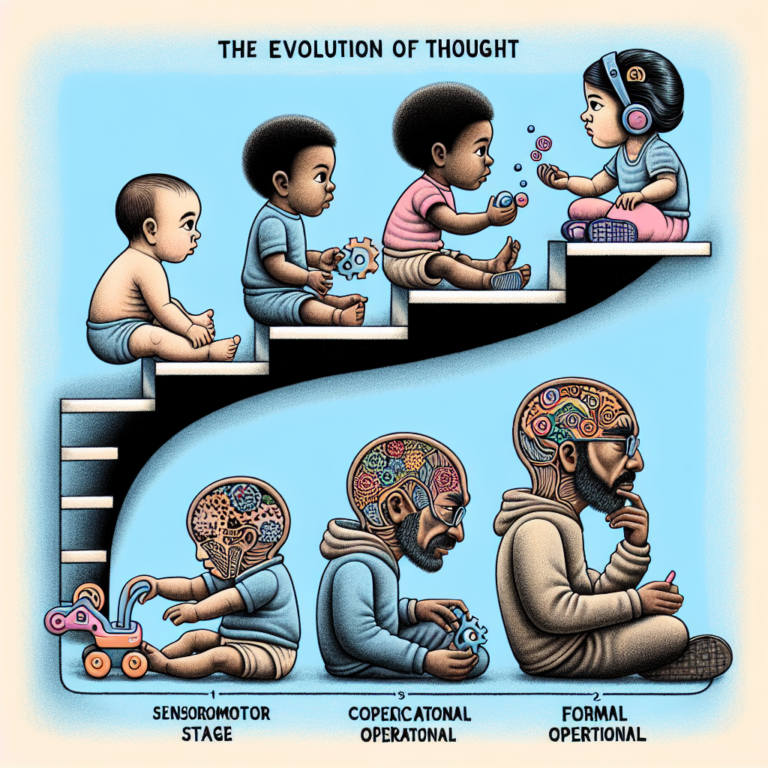
Introduction
Imagine standing on the edge of a diving board, looking down at the deep blue water below. Your heart races, your palms sweat, and a flurry of self-doubt floods your mind. Now, picture yourself taking a deep breath, knowing you have practiced, you can do this. This moment captures the essence of self-efficacy—the belief in your ability to execute tasks effectively—and it’s a vital element influencing performance in various aspects of life.
The Science of Self-Efficacy: Understanding Its Impact on Performance is crucial for anyone striving for excellence, whether in sports, academics, or personal endeavors. This article will delve deep into the meaning and mechanisms of self-efficacy, its effects on performance, and actionable strategies to enhance it.
What is Self-Efficacy?
Definition
Self-efficacy, a term coined by psychologist Albert Bandura, refers to the belief in one’s own capacity to execute behaviors necessary to produce specific performance attainments. It’s about your confidence in facing challenges and persisting through difficulties.
The Four Sources of Self-Efficacy
- Mastery Experiences: Success through careful practice strengthens self-efficacy.
- Vicarious Experiences: Observing others succeed can boost your belief in your own capabilities.
- Verbal Persuasion: Positive feedback and encouragement increase confidence levels.
- Physiological and Emotional States: Managing anxiety and emotional responses can enhance self-efficacy.
The Science Behind Self-Efficacy
Theoretical Framework
Bandura’s Social Cognitive Theory lays the foundation for understanding self-efficacy and its importance. According to this framework, cognitive factors, behavioral patterns, and environmental influences interact to shape an individual’s behavior and reactions.
Table 1: Bandura’s Model of Self-Efficacy
| Factor | Description |
|---|---|
| Cognitive Perception | Personal assessment of abilities |
| Behavioral Response | Action taken based on beliefs |
| Environmental Influence | Support systems and experiences |
How Self-Efficacy Affects Performance
Direct Effects on Performance
Self-efficacy directly influences performance by impacting the choices individuals make, the effort they put in, their persistence, and emotional reactions when facing obstacles.
Case Study: Olympic Athletes
Research involving Olympic athletes shows that self-efficacy plays a pivotal role in their performance. Athletes with high self-efficacy are more likely to engage in challenging training regimens, persist through setbacks, and ultimately achieve superior performance compared to their counterparts with lower self-efficacy.
Analysis
This case study illustrates the significance of self-efficacy in high-stakes environments, reinforcing that belief in one’s capabilities can lead to extraordinary outcomes.
Indirect Effects on Motivation and Goal Setting
A higher sense of self-efficacy encourages greater commitment to goals and fosters intrinsic motivation. Individuals who believe in their skills are more inclined to set challenging goals, leading to greater achievements.
Emotional Regulation
Self-efficacy also plays a role in how individuals manage stress and anxiety. Higher self-efficacy can reduce anxiety levels and enhance resilience, allowing for a more focused and composed approach to performance.
Strategies to Enhance Self-Efficacy
1. Set Achievable Goals
Break larger objectives into smaller, more manageable tasks. Celebrate every small victory to boost your belief in your ability to succeed.
2. Seek Role Models
Surround yourself with individuals who demonstrate high self-efficacy. Observe how they tackle challenges and use their experiences to inspire your own journey.
3. Use Positive Self-Talk
Reframe negative thoughts into positive affirmations. Your inner dialogue can significantly impact your confidence levels.
4. Visualize Success
Engaging in mental imagery can help reinforce a positive self-concept. Visualizing successful outcomes can prepare you mentally for actual performance.
5. Build Support Networks
Having a supportive environment amplifies positive experiences. Seek feedback and encouragement from peers and mentors.
FAQs About Self-Efficacy and Performance
1. What is the difference between self-efficacy and self-esteem?
Self-efficacy is the belief in one’s ability to succeed in specific tasks, while self-esteem relates to overall self-worth. They are connected but not the same.
2. How can I improve my self-efficacy?
You can improve self-efficacy by setting small, achievable goals, seeking mentorship, practicing positive self-talk, and visualizing success.
3. Can self-efficacy be developed over time?
Yes, self-efficacy can be developed through gradual mastery of skills, positive feedback, and supportive environments.
4. How does self-efficacy affect learning?
Higher self-efficacy enhances engagement in learning activities, persistence in face of difficulties, and willingness to tackle challenging tasks.
5. Is self-efficacy the same as motivation?
No, while self-efficacy influences motivation, they are not interchangeable. Motivation is the drive to take action; self-efficacy affects the confidence behind that drive.
Conclusion
The Science of Self-Efficacy: Understanding Its Impact on Performance reveals the intricate connections between belief in oneself and the outcomes we achieve. By cultivating self-efficacy, individuals can unlock their potential, enhance their performance, and navigate life’s challenges with confidence. Remember, it’s not just about the skills you possess; it’s about the belief in your ability to use those skills effectively.
So the next time you find yourself doubting your capabilities, recall this: With the right mindset and strategies, you can achieve greatness. Embrace the power of self-efficacy and watch as your world transforms.
This article has explored key concepts, provided actionable insights, and shared inspiring real-world examples to illustrate the importance of self-efficacy. Continue to foster your self-belief, and you’ll witness remarkable changes in your performance across various dimensions of your life.














